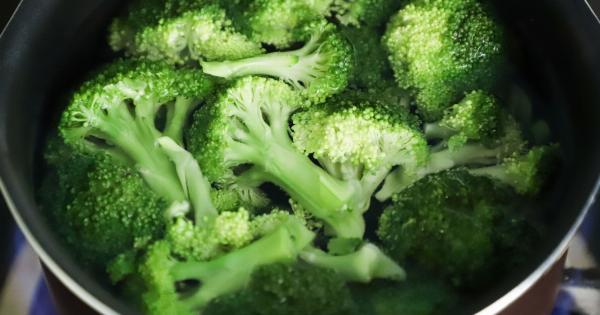Worms are typically known as slimy creatures that dwell in the soil, aiding in the decomposition process. However, what most people don’t realize is that worms can also serve as an unconventional yet viable food source.
In many cultures around the world, worms have been consumed for centuries, providing essential nutrients and protein to sustain human life. This article will delve into the nutritional benefits of worms, their environmental advantages, and the potential for incorporating them into our diets.
The Nutritional Powerhouse of Worms
While the thought of consuming worms may initially repulse many individuals, it is important to recognize the nutritional value they possess.
Worms are incredibly nutrient-dense and can offer essential vitamins and minerals necessary for a healthy diet.
Rich in Protein
Protein is an essential macronutrient vital for growth, repair, and maintenance of body tissues. Surprisingly, worms are an excellent source of protein, containing even higher levels than traditional meats.
Incorporating worms into our diets can provide a sustainable and eco-friendly alternative to conventional protein sources.
Loaded with Vitamins and Minerals
Worms are packed with essential vitamins and minerals that contribute to overall well-being. They are abundant in iron, calcium, magnesium, and vitamin B12.
Iron is vital for the production of red blood cells, while calcium and magnesium promote healthy bones and teeth. Vitamin B12 is crucial for proper neurological function and the formation of red blood cells.
Omega-3 Fatty Acids
Omega-3 fatty acids are known for their numerous health benefits, including reducing inflammation, improving heart health, and supporting brain function.
Surprisingly, worms contain a substantial amount of omega-3 fatty acids, making them an excellent alternative for those seeking to incorporate these essential fatty acids into their diet.
Environmental Advantages of Consuming Worms
Aside from their nutritional benefits, consuming worms also offers several environmental advantages that can contribute to a more sustainable future.
Reduced Land and Water Usage
As the global population continues to increase, the demand for food rises exponentially. Unfortunately, conventional livestock farming requires vast amounts of land and water resources.
In contrast, worm farming, also known as vermiculture, requires significantly less space and water, making it a more sustainable option. Producing worms for food consumes lesser resources, making it an eco-friendly choice.
Efficient Nutrient Conversion
Compared to traditional livestock, worms are incredibly efficient in converting feed into usable protein.
It is estimated that worms convert feed into biomass at a rate of 1:2, which means that for every kilogram of feed, two kilograms of worm biomass can be produced. This high conversion rate makes worms an efficient source of protein, contributing to reduced environmental impact.
Reduced Greenhouse Gas Emissions
The livestock industry is one of the leading contributors to greenhouse gas emissions, primarily through methane production.
Worms, on the other hand, produce significantly lesser greenhouse gases, making them a more environmentally friendly alternative. By incorporating worms into our diets, we can contribute to reducing greenhouse gas emissions and combating climate change.
Overcoming the Psychological Barrier
Despite the numerous benefits, incorporating worms into our diets can be challenging due to the psychological barrier associated with consuming insects or other unconventional food sources.
However, it is crucial to understand that this barrier is primarily sociocultural rather than based on logical reasoning. Many cultures around the world have a long history of worm consumption and consider it a normal part of their diet.
Exploring Different Culinary Techniques
One approach to overcoming the psychological barrier is through the exploration of different culinary techniques. Worms can be incorporated into various dishes, allowing individuals to familiarize themselves with the flavor and texture gradually.
From stir-fries to soups and even as a topping on salads, worms can provide a unique and eco-friendly twist to traditional recipes.
Health and Safety Considerations
Before incorporating worms into our diets, it is crucial to ensure they are sourced from reliable and reputable suppliers.
Like any other food source, proper hygiene and food safety practices should be followed during the handling, processing, and cooking stages. Additionally, individuals with allergies to shellfish or dust mites should exercise caution when consuming worms, as these allergies may cross-react.
Sustainable Farming Practices
For worms to be a viable food source, it is essential to prioritize sustainable farming practices. Worms should be farmed in a controlled and regulated environment to ensure their health and minimize the impact on the ecosystem.
By implementing sustainable farming practices, we can ensure a steady and ethical supply of worms for consumption.
The Future of Worms as a Food Source
As the global population grows and the demand for food increases, exploring unconventional food sources like worms becomes imperative.
The nutritional benefits and environmental advantages make worms a viable solution to the challenges faced by conventional livestock farming. However, for worms to gain acceptance as a mainstream food source, a shift in societal attitudes and acceptance is required.
Cultural perceptions surrounding non-traditional food sources need to change, and comprehensive educational campaigns should be conducted to raise awareness about the benefits of consuming worms.
Conclusion
While worms may not be the conventional food choice, they offer immense potential as an unconventional yet viable food source.
Their nutritional composition, coupled with the environmental advantages of worm farming, makes them a sustainable solution to address the increasing global food demand. By embracing worms as a food source and adopting sustainable farming practices, we can pave the way for a more sustainable and environmentally friendly future.






























